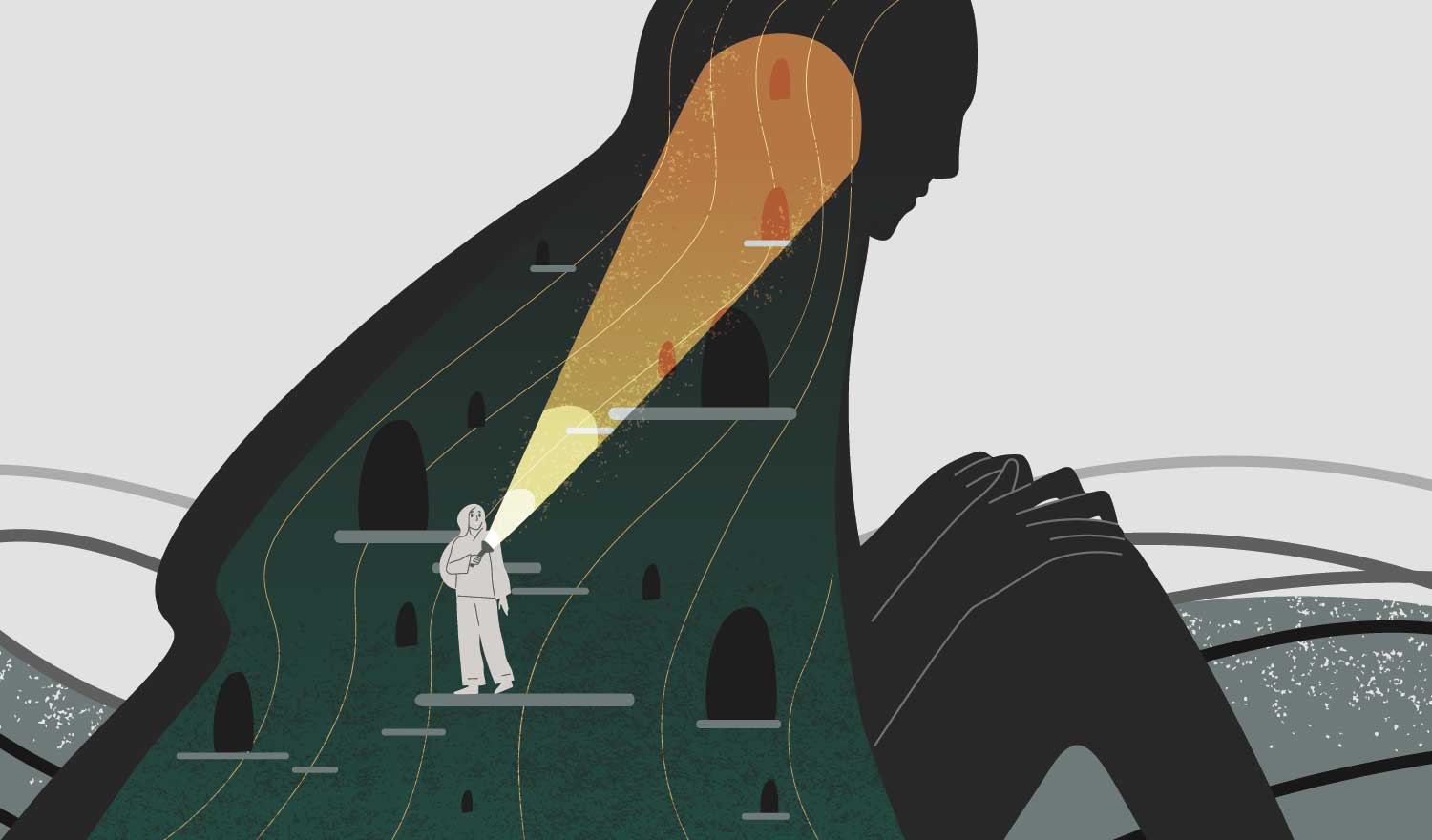I received an email a few weeks back. I found it to be well thought through the question with several layers and nuances. Hopefully, the question and my answer to it might help you as well. Also, if unconscious beliefs and how to change their interests you, make sure to sign up for the free webinar happening on December 3rd.
The Question: How to Change your Mind
Dear Eva,
I was reading your site and I decided to write to you and seek your opinion.
I realize I have a belief that has been harmful my whole life, I hope you could help me to understand how I can discredit false beliefs.
So, my belief is what follows. I was always a person with some emotional and intellectual intensity. As a child, I always had great awareness about my surroundings and because of that some deep questions would frighten me, like death, disease, and pain. I was always in the need to understand everything and, because of that, I always had many questions for my family, mainly about my fears: death, disease, and pain. One day I was asking my mother several questions about AIDS when I was 10 and I remember I was very annoying. Because I was always asking these questions, my sister told me that it would be better so stop thinking about disease, or else, I could get it only by thinking about it. My sister believed, and still believes, that mind can heal the body, as well can cause disease in it. She is very esoteric, unlike me who becomes a man of science with no beliefs in the supernatural world.
However, this idea scared me a lot. I wanted to stop thinking about AIDS and tried to but would fail to do it. Then I realized that I couldn’t think of any disease and anything I didn’t want to have. Because if a thought could incite disease, it also could incite other things I didn’t want. I become afraid to think about anything I was afraid of and started to check my thoughts. My luck was that this only happened sometimes, mainly in the summer for about one month, when my mind was unoccupied and when I would listen or read something that scared me.
With time, I started to read a lot about neuroscience, psychology, and philosophy and realized that thoughts don’t have that power. Thoughts are only images in my mind that we recollect or anticipate. Our behavior is mainly guided by emotions (as Damasio and Ledoux concluded) and by subconscious structures. Our conscious thought and feeling is, by the way, the result of unconscious mechanisms that we can control.
However, although I don’t believe anymore that thought can produce disease in the body, the fact is that I maintained the habit of checking my thoughts when I read something that scared me, about a mental disease for example. Ie, I realize that I didn’t stop to believe fully in my false belief. I still have the belief that I can’t think about something I don’t want to have. I continue to make the cognitive pattern I did when I was 10. I don’t do it for fear of body disease but I do it for other things. It’s like the thought experiment of the white bear. If I try not to think about a white bear, I will think about it more.
My question is. I know that what I need to do is to allow myself to think all thoughts. I realized some days ago that I need to not try to control my thoughts. However, because I know what to do I become frustrated when it seems it’s not working as fast as I want. I continue to control my thoughts subconsciously. Ie, sometimes the old pattern that I created when I was 10 emerge to monitor if I’m thinking the thoughts I don’t want to. And I become frustrated because I already know what thoughts are and I already know that I should allow myself to think anything. So, why do I continue to be anxious about some of my thoughts? I wonder if my attempts to stop monitoring the thoughts are provoking anxiety. All that we resist persist, right? So, what if I’m forcing to stop monitoring my thoughts? It won’t work, right? Because it’s a resistance towards these thoughts. Maybe I need to do the opposite. I need to allow myself, not only thinking about everything but also monitoring my thoughts without reacting to it. Instead, I can allow myself to monitor my thoughts, respond to it in a proper manner like – “Ok, you are monitoring your thoughts because of a false belief that it is rooted in your subconscious which is perfectly natural because it is your pattern.” But how can I change that pattern?
What can you tell me about all this?
I appreciate your kindness and thank you for your time.
Rodrigo

My Response: How to Change your Mind
Hello Rodrigo,
Thank you for your email and for trusting me with your question, which you seem to have put both effort and time into understanding on a deeper level. You seem to sincerely want to get to the truth and I will share some thoughts that hopefully will bring you closer to it. It is a good question and maybe I will publish our email exchange as a blog post on my website, without your name or personal details of course. I think it could help others as well.
As you are mentioning – trying to replace a belief (“my thinking about decease can make me ill”) with another (“my thoughts don’t have the power to affect my health”) will not change the original belief. It is a bigger chance it will stack beliefs on top of each other. And as you experienced possibly add self-judgments about still having the original belief. This is what often happens when we read self-help books or practice positive affirmations without addressing underlying beliefs – now we know what we are “supposed” to think and feel and are trying to make ourselves feel that way. But the original belief is still in place and it is likely that we start feeling bad every time thoughts or emotions originating from that belief shows up. “I should be over this”, “I know it’s not true so why am I believing it” and so on. Practicing acceptance and observing it instead of labeling or wanting to change it will help with the anxiety. This is much easier said than done though, cause the judgments are held by specific parts of our unconscious. To access these you can use similar ways to what I will mention further down.
Replacing a belief with another is like burying bodies in the same grave. Just because you put a new body on top of the old doesn’t mean that the old corps went away. Or you made a plate of spaghetti and now you don’t want it anymore, so you put a chickpea stew on top of it. Your plate is now fuller and the pasta is not gone.
To understand why you can’t just replace an old belief with a new thought you have to understand how a belief is formed and what holds it together. A belief is put into place with a clear thought, strong emotion, and faith. Going back to the example of the spaghetti dish – this time imagine that the thought is the plate. It is not a dish by itself without the food on it, the emotions. When there is an emotion we have a way of believing the thought as true, our minds see the thought as confirmed since it matches the emotion (even if we made the whole story up) – now we have faith in the thought. We have several thoughts every day that we do not believe or pay much attention to. But when adding food and flavorings to the dish it now looks very tempting and we want to eat it. A belief is formed.
When you know how a belief is created you can both take old ones apart and put new ones, that serve you better, into place. Beliefs that create emotions like gratitude, compassion, and love for ourselves and others seem to work very well for our own happiness and humanity as a whole.
There are different roads and techniques to take apart a belief and I will mention two, that also can be used together. One is accessing the emotion it was created with, allowing it, and releasing it. Another is to see the logic (or lack thereof) it was put into place with. This is not an intellectual process but a visit to that part of you that believed this to be true and update it on the changes that have taken place since it was created. These parts of your unconscious are often oblivious to the fact that you have grown up and have other ways to take care of yourself and other knowledge than when you were 10. When you reach them, listen to their logic with curiosity, acknowledge them and maybe even share some updates with them there is often a dissonance that creates a crack in their world. Being present with that dissonance or even actively helping these part of you to move along will shift them and the belief they held.
Sometimes a belief can be changed in an instance this way. Sometimes you need to visit them more times to get to the different layers, which leads me to the last thought I want to leave with you.
Some beliefs stand-alone and some are deeply intertwined with others in big belief systems. When you get to and shift a core belief, several other beliefs will fall with it. Other times we need to visit them one by one and often discover new ones underneath the one we were working on. In your specific example, there might be other beliefs that your visible one is resting on. You might not be able to get to the one about your thoughts making you sick without revealing others that for example could be about listening to your family and your sister, feeling bad for asking too many questions, or about spiritual vs scientific paths in life. (I am making these up as examples, they can be anything connected in the most subtle ways to this situation.)
The more of the situation (thoughts – reactions – emotions) you can map the better you will see the full picture.
So to summarize the most crucial points:
- To change your beliefs you need to practice being present with your emotions and a natural way of releasing them
- Beliefs are stored in the unconscious and can therefore not be changed through our rational thinking mind. You need to practice ways of accessing your unconscious
- Practicing observing and acceptance with what is, in your own reactions and emotions (as well as with the world around you) will stop the cycle of judgments, anxiety, and adding layers to beliefs.
- Beliefs can be connected in bigger structures and affect each other
If you find it challenging to learn these skills and master the techniques of changing your beliefs there is support in form of online courses, individual coaching, and workshops available.
Does this help?
Wishing you happiness,
Eva
If you want to learn more about unconscious beliefs and how to change them, join me, Gary van Warmerdam and Neil Bjorklund in a free webinar on December 3rd. Read more and register to get the link here.
changing habitsfearful thoughtsunconscious beliefs


